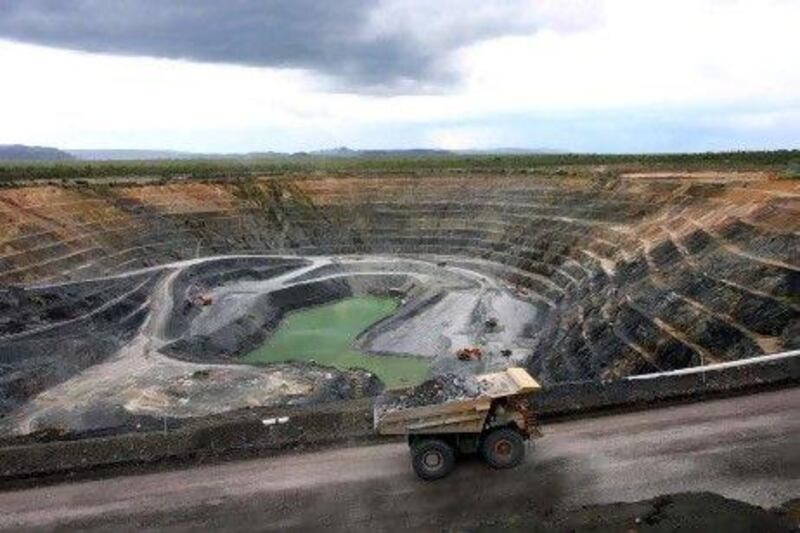The UAE is set to sign a major supply deal for nuclear fuel at a time when prices for uranium have fallen by more than a quarter from earlier this year.
What's the alternative?:
Energy Join The National as it explores alternative to fossil fuels. Learn more
Since the accident at Japan's Fukushima Daiichi power plant in March, uranium prices have fallen from about US$70 (Dh257) a pound to as low as $48.75.
With Australia emerging as a front runner, Emirates Nuclear Energy Corporation (Enec), the Abu Dhabi Government-owned company in charge of building and running the reactors, expects to award a contract for 15 years' worth of fuel within the next four months.
"They're in the market at a good time," said Jeremy Gordon, an analyst at the World Nuclear Association in London. "Any serious buyer entering the market at this time is in a good position."
In the wake of the meltdown and radiation contamination at the Fukushima plant, Japan and Germany have shut down 14 reactors and Italy has backed away from plans to produce nuclear energy.
Amid the scaled-back forecast for global nuclear power growth, the contract to supply the UAE's four proposed reactors is a prize for companies that mine uranium and process it into fuel.
"If you're a fuel supplier, it's obvious you would like to get that," said Mr Gordon.
"It's a very secure contract for the long term."
Negotiations for the contract, which was opened for tender in July, are under way with "a number of leading companies," said Mohamed Al Hammadi, the chief executive of Enec.
The $20 billion nuclear programme calls for four reactors, the first of which is scheduled to begin producing electricity in 2017. By 2020, the four South Korean-designed reactors are planned to provide as much as a quarter of the emirate's electricity, assuming approval from the independent federal nuclear regulator.
Enec has started to prepare its proposed site 300km west of the capital near the isolated town of Braka, and yesterday members of the International Advisory Board, an independent panel of experts who periodically assess nuclear programmes, ended a two-day review that included a visit to the site.
The UAE is finalising a nuclear cooperation agreement with Australia that would lay the groundwork for the holder of the world's biggest uranium reserves to supply the raw material. The UAE already has similar agreements with the US, UK, France and South Korea - enabling the exchange of nuclear technology, supplies and knowledge.
Australia has emerged as one of the most vocal of the prospective suppliers, with Kevin Rudd, the foreign minister, laying out his goals for a uranium trade deal during a March visit to Abu Dhabi.
"Australia is an important country from the perspective of a major uranium supplier to the rest of the world and also enjoys a close relationships with the UAE," said Hamad Al Kaabi, the UAE envoy to the International Atomic Energy Agency (IAEA), the UN's nuclear watchdog. "We're pretty optimistic that it will be signed soon."
Among the options the Emirates is weighing for nuclear fuel supply is one where another nation would take back the waste for permanent storage. If the UAE could arrange such a deal - known in the industry as "fuel leasing" - it could provide a model for other nations to follow.
"This has not been in a comprehensive manner before," Mr Al Kaabi said at the IAEA's headquarters in Vienna.
"A lot of work needs to be done on the legal and practical side, but also the potential business model. So a lot of challenges need to be embraced.
"But it would be a great opportunity for the nuclear sector to develop a comprehensive fuel services arrangement that would assist other countries to have such services available to them," he said.
If no such deal is reached, the UAE would have to design its own long-term waste storage policy that could involve burying the spent fuel deep underground.
twitter: Follow and share our breaking business news. Follow us





